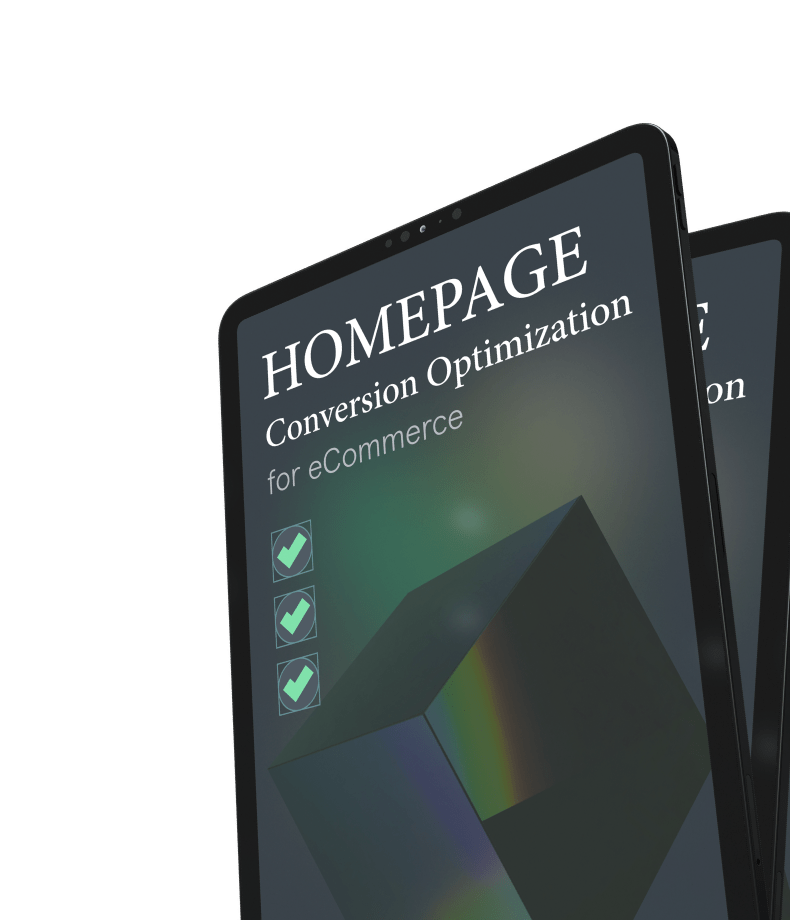Thinking of building an online store but don’t know where to start? You’re not alone! With so many online store builders available on the market, it can be overwhelming to choose the right one that fits your eCommerce business needs.
From fully customizable platforms to user-friendly interfaces, and from small merchants to enterprise-level businesses — the options are endless. Whether you’re looking to sell physical or digital products, online-only or both online and in a brick-and-mortar store, there’s a website constructor out there for you. So, which one to choose?
To make things easier for you, we’ve put together a brief summary of the 7 best website constructors and their strengths, so you can quickly find the one that suits your needs. The ideal option for you to start selling online would be an eCommerce website constructor that provides the functionalities you require within your budget range. Read on.
eCommerce platform vs Online store website builder
An eCommerce platform is a software application that enables businesses to manage their online sales operations. It provides a range of features, including inventory management, payment processing, order management, and customer relationship management.
An eCommerce website builder is a tool that enables businesses to create their own online store without any coding skills. It usually comes with pre-designed templates, drag-and-drop editors, and a range of customizable options for adding products, payment gateways, and other essentia eCommerce features. Some examples of builders are Square Online and Zyro.
An online store builder can also be an eCommerce platform if it provides all the necessary features and tools for managing online sales operations. Some eCommerce website constructors, such as Shopify, Wix, and Squarespace, offer both eCommerce website building tools and eCommerce functionality.
Development Get a robust PWA
Supercharge your eCommerce efforts with superb UX and ‘superfast’ speed. Build an eCommerce PWA from scratch or save time and money using GoPWA Storefront.

Benefits of using builders
eCommerce website constructors offer numerous benefits to businesses looking to establish or expand their online presence. Here are some of them:
- Ease of use
These builders offer intuitive interfaces, drag-and-drop functionality, and pre-built templates, making it easy for users to create and customize their online store without the need for coding or design skills.
- Cost-effectiveness
eCommerce website builders are more cost-effective than hiring a web developer or designer to create a custom-built website. They offer a range of pricing plans, including a free plan, and come with hosting and domain services included in the package.
- Time-efficiency
With eCommerce website builders, you can launch your online store quickly and easily, with minimal setup time. You can also make updates and changes to your website without the need for technical support, saving you time and money.
- Marketing features
Many eCommerce website builders come with built-in marketing tools, such as email campaigns, social media integration, and search engine optimization (SEO) features, which can help you promote your eCommerce business and reach a wider audience.
- Scalability
As your business grows, you can easily upgrade your plan and add new features and integrations to your online store, without the need for a complete eCommerce website redesign.
- Customer support
eCommerce store website builders often provide customer support via chat, email, or phone, giving you peace of mind that any technical issues or questions will be resolved quickly and efficiently.
Best option for small to medium-sized online stores — Wix
Our top pick for the best online store builders for small businesses is Wix, primarily due to its user-friendly interface that simplifies the website creation process. With a vast library of over 800 website templates and a drag-and-drop format, beginners can easily create professional-looking websites. As businesses grow, the website builder’s creative flexibility allows for further expansion and customization.
In addition to its ease of use, Wix also offers an impressive range of features. With its App Market, businesses can easily add features such as email and SMS marketing, as well as receive additional SEO support.
Wix also provides a tailored plan for improving website SEO through its SEO Wiz feature, which makes it an ideal choice for beginners in SEO. Wix offers three paid plans to choose from, with its eCommerce plan being one of the options. Although the free plan is available, it does not allow for connecting a custom domain, so we recommend upgrading to a premium plan as soon as possible.
Pros of Wix:
- Provides abandoned cart recovery emails to help recover lost sales
- The user-friendly drag-and-drop editor allows you to visualize your storefront design easily
- Built-in functionality for selling on Instagram
- Helps create a strong brand identity for your eCommerce business
- Allows for adding product videos to enhance customer engagement
Cons of Wix:
- Offers only basic inventory and analytics systems, which may not be sufficient for businesses seeking growth
Magento
Development Get an online store that sells. Woo customers with a seamless UX that guides them from the first point of contact to the checkout page.

Best option for larger businesses — Shopify
If you’re running a large eCommerce store with over ten products, Shopify is the best eCommerce website constructor for you. With over 4,23 million online stores powered, Shopify has helped sell over $180 billion worth of products, making it a trusted and reliable option for businesses and one of the best online store builders.
Shopify has all the necessary tools to help you build a successful eCommerce store. Its vast app store provides an extensive range of customization options to tailor your store to your specific needs. As a dedicated eCommerce platform, Shopify offers more advanced sales tools compared to website builders like Squarespace and Zyro. Retaining customers is crucial in eCommerce, and Shopify’s user-friendly platform ensures that customers keep returning.
For businesses that struggle with storage, Shopify’s built-in dropshipping tools make it an excellent solution. Additionally, if you’re already selling products, Shopify offers apps that let you sync inventories, making it easy to manage all your sales from one place. Shopify’s multichannel selling options, including integration with social media platforms such as Instagram and Facebook, and online marketplaces such as Amazon and eBay, provide a broader reach to target potential new customers.
Pros of Shopify
- Ideal for larger stores with its powerful backend editor and impressive inventory system that make it easy to manage and scale
- Multi-platform selling options, including Facebook, Instagram, Amazon, and eBay
- Stand-out design functionality and flexibility with a variety of free and paid templates to choose from or the option to create a custom design from scratch
- A library of over 3,000 third-party apps and extensions to enhance your store’s functionality
- Extensive payment options, supporting over 100 payment gateways, including Shopify’s own payment gateway, Shopify Payments
- Thorough and available round-the-clock customer support to assist you in any situation
Cons of Shopify:
- Not as intuitive to use as other platforms, taking a while to get the hang of the editor
- Reliance on apps as Shopify has fewer built-in features than other platforms, requiring additional third-party apps to boost functionality
- High additional transaction fees unless you use Shopify Payments, with other gateway costs added to the fees
- Running your eCommerce store can be more expensive than it appears, with transaction fees and the need for additional apps hiking up the monthly cost
Simplest option — Squarespace
Squarespace is a highly regarded website constructor that boasts over 100 professionally designed, mobile-friendly templates. It’s not just aesthetically pleasing; it’s also packed with features, incredibly cost-effective, and user-friendly, especially with the new and improved editor.
When it comes to eCommerce sites, Squarespace combines powerful features, such as its inventory system, with stunning, eCommerce-specific designs. This makes your products stand out and gives customers a better understanding of what they’re buying before clicking the buy button. It’s perfect for small or growing stores seeking a branded storefront, with useful tools included in both of its eCommerce paid plans, from inventory management to abandoned cart recovery.
By using the Squarespace Commerce app with your Square account, you can even sell in a brick-and-mortar store and keep everything synced in one place. The platform enables you to take card payments on the go, with any sales automatically synced with your online inventory.
Pros of Squarespace
- Offers stunning templates that are optimized for desktops, tablets, and mobile devices
- Provides excellent marketing features, including support for email and social media, making it ideal for businesses seeking to grow
- Offers the best value for money compared to other builders we tested
- Provides top-notch customer support with 24/7 email and weekly live chat support
Cons of Squarespace
- Its basic editor doesn’t allow full customizability; you can only customize within your template’s preset rows
- The editor can be too manual; e.g., it prompts you to save your work after each change, but it doesn’t autosave on its own
Lean about the state of headless in eCommerce

Best for purely online sales — BigCommerce
BigCommerce is a well-known eCommerce platform that has a roster of impressive clients, including Clarks and Ben & Jerry’s. Its online stores have been reported to grow at almost double the industry average, making it a popular choice.
This is thanks to its wide range of tools that offer various multi-channel selling options and the ability to accept international payments. It also offers several great in-house features, such as customer reviews, email marketing tools, and search filters.
BigCommerce provides a library of themes that include everything you need to make your online store successful, making it the perfect choice for those seeking to rapidly grow their online business. However, its biggest drawback is its ease of use, as it uses complex terminology that can be challenging for users who aren’t familiar with such specialist terms. Additionally, its editing interface can be confusing and difficult to navigate, resulting in lower customer scores in our research.
That being said, if you’re tech-savvy and confident, BigCommerce is an excellent choice. It enables you to sell physical and digital goods and services without the need for additional apps. However, it’s not recommended for beginners in business or tech due to its difficulty of use. Its pricing reflects the vast number of tools and features you receive, making it a worthy investment for those looking to grow their online store remarkably.
Pros of BigCommerce
- Offers a wide range of in-built features that make it the best online store builder for growing and scaling your online store
- Allows you to sell across multiple sales channels like Facebook, Instagram, and Pinterest, expanding your reach
- Provides fantastic SEO capabilities, helping your store to rank higher in search results
Cons of BigCommerce
- Not suitable for beginners due to its tricky editing interface, which can be challenging to navigate
- The platform can become expensive beyond the standard plan, which may not be cost-effective for small businesses or those on a tight budget
Best for WordPress site owners — WooCommerce
WooCommerce has become the most popular eCommerce software worldwide due to its ease of use for beginners and the powerful features it offers. As an open-source platform, it is completely free and provides complete freedom and control over your eCommerce website.
Unlike other proprietary eCommerce platforms, there are no licensing fees involved with WooCommerce pricing, allowing you to create as many online stores and eCommerce websites as you like. Being an eCommerce plugin built on top of WordPress, it enables you to benefit from all the powerful features of a WordPress existing website.
There are thousands of beautiful WooCommerce designs and templates available for you to choose from, with easy-to-use customization options, and many of them are free. Its flexibility is another reason why business owners love WooCommerce as you can add additional features by using various WooCommerce plugins, such as booking, subscriptions, shipping platform integrations, sales tax collection, and more.
Apart from the add-ons made specifically for WooCommerce, you can also use thousands of WordPress plugins to add features like contact forms, call now buttons, galleries, data backup, security firewall, etc. Another advantage of using WooCommerce is that it puts no restrictions on how you run your business, allowing you to add unlimited products, make unlimited sales, import and export product data, add unlimited product images, videos, categories, and more.
WooCommerce seamlessly integrates with dozens of payment services and gateways, making it easy for users to accept payments online. It supports PayPal and Stripe out of the box, and you can use dozens of other payment gateways through add-ons. Even integrations are available for some lesser-known and regional payment gateways.
Pros of WooCommerce
- WooCommerce offers advanced features suitable for large online stores
- The platform has a huge community and a vast selection of plugins and extensions to enhance your online store’s functionality
- WooCommerce allows you to set up both customer and store administrator accounts with different rights, and customers can also do a guest checkout without creating an account
- The platform provides a wide range of both free and paid WooCommerce themes that you can modify depending on the theme settings and your skills
Cons of WooCommerce
- The setup process for WooCommerce can be challenging for inexperienced users, despite offering a preinstalled version
- WooCommerce lacks central support like Shopify, and support channels differ for every theme, plugin, and hosting option. The absence of dedicated support can lead to problems later on

Best free eCommerce builder — Square Online
Square Online is an eCommerce website builder that was born out of the payment processing platform Square, which acquired the Weebly website constructor in 2018. By combining Square’s payment expertise and Weebly’s simple online store builder, Square Online offers pretty good eCommerce tools, although its templates may appear a little outdated compared to its competitors.
Square Online stands out as a great option for those seeking value for money. It allows you to start selling absolutely free, which is a rare feature among eCommerce builders. With Square Online, you can easily add products, shipping options, and use the automatic tax calculator to simplify digital sales.
If you only have a few products to sell online, you can use Square Online Checkout Links, which are free for small businesses to add to their website and accept payments directly from visitors. This is particularly useful for those who already have a business website as they don’t need to rebuild from scratch to start accepting payments.
The best part is that setting up a Square Online account to build a Square Online store is free, and the checkout links are completely free as well. The only charge you’ll incur is Square’s 2.5% transaction fee, which is much more affordable than a $20/month eCommerce subscription.
Pro of Square Online
- Square Online offers great features at a reasonable price, making it a cost-effective option for eCommerce
- Square Online provides easy-to-use site dashboard keeps track of product sales, customer journeys, and abandoned cart recoveries
- Inbuilt marketing features support various marketing and sales channels, including email marketing and paid advertisements
Cons of Square Online
- To avoid larger transaction fees, you’ll have to use the Square payment gateway, limiting your options
- The scope for customization is limited on Square Online, which may not be ideal for those looking for more flexibility
- There is a small learning curve when getting started with Square Online, which may require some time to adjust to
Most affordable option — Zyro
Zyro is a new online store builder that may seem basic, but it manages to get a lot of things right. One of its most appealing aspects is how easy it is to use. Zyro has a drag-and-drop format that is similar to the more popular online store builder Wix, making it simple and intuitive for users.
Another advantage of Zyro is its clean and professional templates that give your website a sleek look. However, it’s worth noting that customization options are limited, and you can’t switch templates after your site is live.
Zyro stands out for its suite of AI tools, something that is not commonly seen in website builders. The heatmap tool, which highlights the areas of your pages that are getting the most visitor attention, is particularly useful for small businesses.
Pros of Zyro
- Zyro has strong design functionality and offers a range of attractive templates for users
- It can be integrated with POS systems, making it a versatile option for real-life selling
- Zyro supports a good number of payment providers, giving users more flexibility in their transactions
Cons of Zyro
- The website editor and store manager do not integrate seamlessly, which can be frustrating for users
- Zyro has limited SEO tools, with no canonical tags or best practice prompts for new users
- Help and support options are limited, as there is no email, phone, or onsite editor support available
How to choose the best eCommerce website constructor
When it comes to choosing the best eCommerce website builder, there are several factors that you should consider. Here are some key points to keep in mind:
- Ease of use. Look for a website constructor that is user-friendly and intuitive, with a drag-and-drop editor and pre-designed templates that can be customized easily.
- Design and customization options. Choose a website constructor that offers a variety of design and customization options, such as customizable themes, fonts, and colors, as well as the ability to add your own branding elements.
- Payment gateway options. The website builder should support a range of payment gateways, including popular options like PayPal, Stripe, and Square.
- eCommerce features. Look for a website builder that provides a range of eCommerce features to manage inventory, process orders, and have complete control over customer relationships.
- Mobile responsiveness. Your online store should be mobile-responsive, meaning it can be accessed and navigated easily on mobile devices to let customers shop on the go and have a seamless shopping experience.
- Pricing plans. Consider your budget and look for a website builder that offers pricing plans that fit your needs. Some website builders offer a free plan, while others have tiered pricing plans with different levels of features.
- Customer support. Look for a website builder that offers reliable customer support, such as live chat, email support, or a knowledge base.
- SEO tools. Choose a website builder that offers built-in SEO tools to help you rank higher in search engine results.
And to sum up, here are some tips before you make your final decision:
- Review price and feature charts
Look at the charts provided by online store builders to identify which features are offered at each price tier. Compare providers to determine which one best suits your needs.
- Consider your built-in option
If you already use Square, Shift4, or Shopify Payments for credit card transactions, check out the online store builders offered by those companies. Make sure the website builder you choose integrates with your existing payment processor and other software programs.
- Use free trials
Take advantage of free trials offered by most eCommerce website builders to test out different store designs, products, payments, marketing tools, and test orders before committing to a subscription.
- Plan for growth
Choose an online store builder that can support your growth, even if you don’t plan to sell products online on Amazon or social media sites yet. Platforms like Shopify and BigCommerce make it easy to set up those integrations later.
Final thoughts
An eCommerce website builder lets you sell online easily by eliminating the need for extensive knowledge about creating and running a website. This enables businesses to concentrate on generating sales and revenue without worrying about the technical complexities involved in managing the backend of a website. And if complemented with rich functionality, builders can provide a comprehensive set of features for managing the entire online sales process, while offering customers a seamless and efficient online shopping experience. Just pick the right one from our guide and start selling online.







